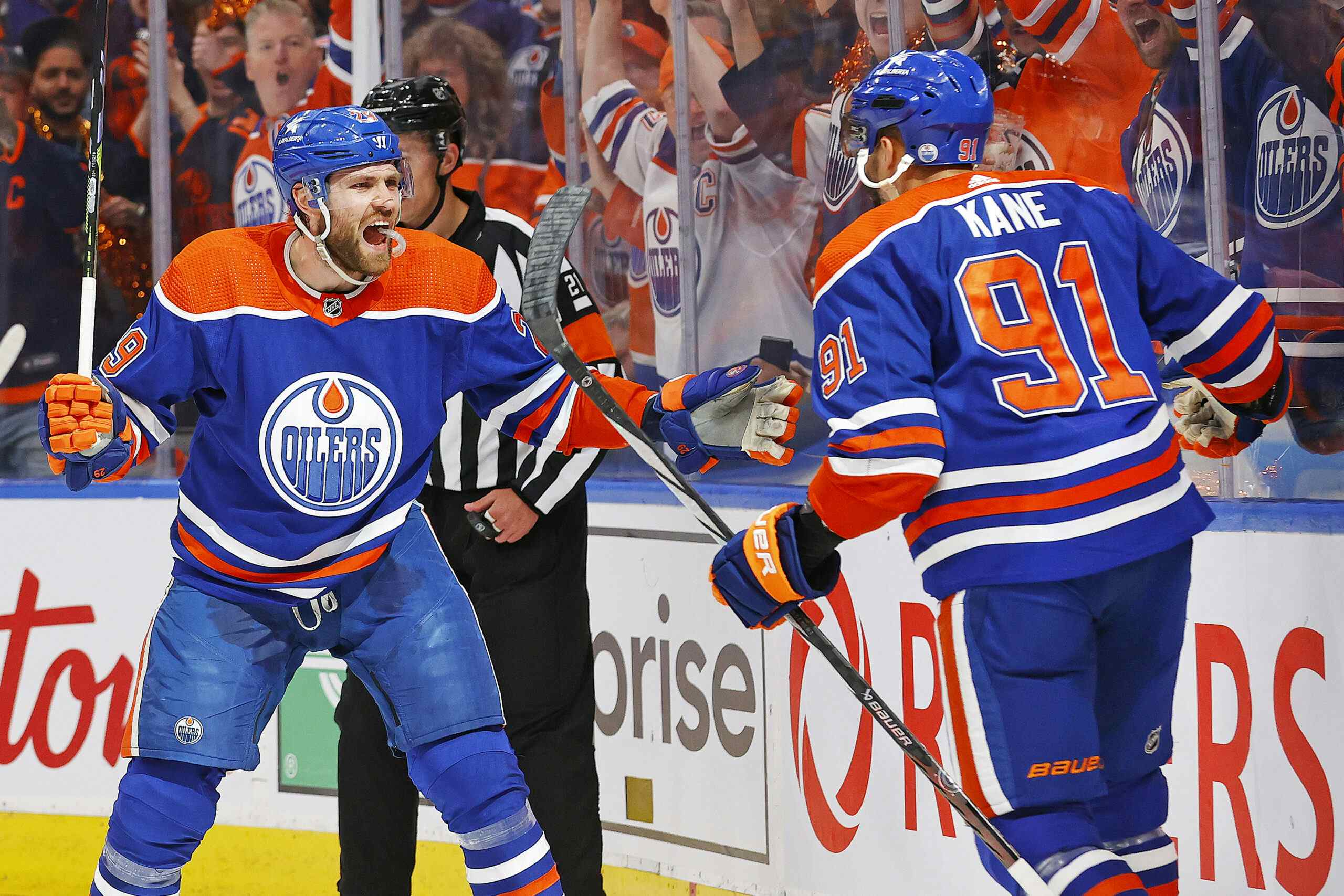Kevin Lowe: “It’s A Business First”
If there’s anyone who understands the difficulties posed by separating the personal from the professional, it should be Kevin Lowe.
During Kevin Lowe’s time as Oilers general manager and then president of hockey operations, the Oilers have been forced to make a variety of decisions that ultimately involved personal feelings. One imagines the behind-the-scenes dismissals of the Tambellini regime – such as Kevin Prendergast, a 20-year man, and that business with the trainers back in 2010 (including the then-head trainer, Lowe’s brother Ken) – roused some personal feeling.
According to Lowe, however, it’s best to take personal feeling out of the mix. Here’s what he told Jason Farris in the book Behind the Moves:
Probably the strongest lesson I got from Glen [Sather] was that it’s a business first and you have got to learn to appreciate that. Yes, we can be friends once we get the business done, but let’s get the business done first. Maybe at times I’ve appeared to take a hard line with people, but I can really separate the feelings… [For instance,] the Gretzky trade. Wayne is still a very good friend of mine and always has been, and I have the greatest respect for him, but a lot of my teammates took it much harder than I did because I just saw it as business and [I took the attitude of], ‘What are you going to do about it?’ … We had to move on. We had to play.


It’s quite possible that Lowe is talking from experience on that one; during his time as general manager the Oilers made a few decisions – most notably the scrapped trade that would have seen Mike Comrie go to Anaheim in exchange for Corey Perry and futures – that seemed to have motivations behind them other than what was best for the team.
Whatever his imperfections in practice, in statement Lowe is absolutely correct. Later in the same book, current Philadelphia Flyers general manager Paul Holmgren recalled a story when he was coaching the Flyers. One of the players under Holmgren’s watch was Tim Kerr, a long-time Flyer who had been a line-mate of Holmgren’s and was with the team when Holmgren started out as an assistant coach.
As Holmgren tells the story, then-Flyers G.M. Russ Farwell called him in for a meeting and asked him, “Tim Kerr: Do you play him that much because of what he has done for you in the past, or what he is doing for you right now?” It made Holmgren “step back” and assess why he was making the decisions he was, because as he admits “I probably did have a soft spot for him.” As he puts it now: “It is so easy to fall in love with your players.”

Those connections are natural, and hard to overcome, but as Lowe indicates a general manager needs to be able to separate the decision-making process from emotion. That’s not to say that the personal doesn’t matter – someone like Sean Avery, who mocked Los Angeles captain Dustin Brown for his speech and his girlfriend while they were teammates can be a disruptive influence – just that it matters only insofar as it impacts performance. In other words: a G.M. doesn’t dump Avery because he dislikes him; he dumps him because he’s having a negative impact on the team.
If a trade can be made that helps the team – even if it’s unpopular – the general manager has an obligation to make it. If he can make a deal with someone he doesn’t like that will improve his team, he’s under the same obligation. The same goes for all decisions, from the draft to free agency to contemplating buyouts – personal feeling for players must not get in the way of what is the right decision for the team.

Lowe, to his credit, seems to have picked up on that lesson. The merit of the Dustin Penner offer sheet is debatable but what isn’t is that Lowe legitimately thought he was making the right decision, and wasn’t afraid to alienate a man like Brian Burke if it helped his team. The merit of trading away long-time Oiler Ryan Smyth rather than re-signing him to a long-term deal was debatable, but again Lowe felt he was making the right decision and wasn’t going to let personal attachment to the player or the feedback of fans (including the creation of this very site) change his mind. As he says in the book regarding the Smyth transaction:
I would say that maybe if I had been a little less business-like in the Ryan Smyth deal [to the Islanders and allowed myself to] bring the feelings into the whole thing a little more, that it’s unlikely things would have ended that way.
I’m not here arguing that Kevin Lowe has always been perfectly impartial; neither am I arguing that those two transactions were necessarily in the best interest of the Oilers. However, both were made despite the knowledge that they weren’t going to win Kevin Lowe any friends. For any general manager, the ability to look beyond the personal and focus solely on the benefit to the team is a vital trait.
This week by Jonathan Willis at the Nation Network
- Justin Schultz would solve a lot of problems for the Oilers
- The Oilers should sign Josh Harding this summer
- Roberto Luongo asks for a trade
- Red Wings’ G.M. Ken Holland on player development
- Team Canada takes shape – and is looking pretty good
- Anton Lander: Putting the genie back in the bottle
- Milan Lucic and drafting "Coke Machines"
- Tyler Pitlick’s future with the Oilers
- Does the Presidents’ Trophy matter?
- Raffi Torres suspended 25 games for his hit on Marian Hossa
- Are the Oilers to small down the middle with Gagner and Nugent-Hopkins?
- Will Nail Yakupov’s reckless style lead to injury?
Recent articles from Jonathan Willis





